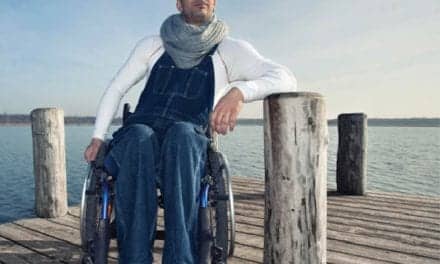Rehab product suppliers can play an integral role in the industry by providing products that meet the needs of therapists and, ultimately, patients. On its face, the relationship is transactional. Suppliers operate sophisticated e-commerce websites that list thousands of product SKUs that rehabilitation professionals can use, recommend, and sell to patients. These sites go to great lengths to simplify the selection and ordering of branded products, with control panels to improve management visibility and keep costs down.
The best work is seamlessly and almost invisibly in the background, providing opportunities for physical therapists, occupational therapists, hand therapists, and other rehabilitation specialists to conduct e-commerce, using customizable product selections under their name and brand colors – all on an easy-to-launch website.
“Therapy products are an essential part of a patient’s treatment plan and directly impact the recovery process. Having a wide range of products available helps therapists provide the best possible care and improve outcomes. Given the importance, we have an obligation to ensure products are high quality, competitively priced, and readily available,” says Mark E. Biehl, president and CEO of North Coast Medical.
Biehl, a second-generation CEO, exponentially grew the family company by expanding across a continuum of rehabilitation sectors, negotiating new distribution agreements with best-in-class branded products, acquiring other companies, designing and manufacturing proprietary brands (e.g., ActivaPatch, Comfort-Cool, Touch-Test, Progress, Air-Putty, Norco, and Achieva), and creating e-commerce opportunities for clinicians through customizable product websites. Under Biehl, the company has grown to be a global supplier that distributes internationally.
According to Biehl, however, rehab product suppliers today have an obligation to go above and beyond this transactional model to integrated delivery networks (IDNs), hospitals, clinics, and private practice in ways that are not immediately obvious.
This includes designing and manufacturing new products when a need is identified in the market, participating in opportunity sharing arrangements with hospitals and clinics, and even selling items they create through competitive distribution channels. Biehl is also calling on the industry to do more to support charitable organizations that benefit military veterans and others in need through donation of a percentage of sales profits.
“Helping the industry as a whole is a benefit to all,” says Biehl. “We should all be working to create opportunities from the hospital or IDN, to the healthcare professional, and ultimately the patient. When we do that, everyone wins.”
Developing New Specialty Rehab Products
Like other rehab product suppliers, North Coast Medical distributes a variety of products from other manufacturers. The company currently distributes internationally in 58 countries. With four distribution points throughout the world, (two in the United States, one in China, and one in Europe), North Coast is truly a global supplier.
“We are not just a distributor of rehabilitation products, we are also a product developer,” explains Biehl. “I love that side of the business because I believe we are coming up with very innovative and exciting solutions that help patients maintain their independence and help them function in life.”
To create new solutions, the company taps into the expertise of its in-house product development team, which includes physical, occupational, and hand therapy practitioners. The company also often brings in world-class product designers to collaborate on new designs.
“The industry has always operated on a model of creating the lowest priced widget and trying to sell it in the highest volume,” says Biehl. “The goal instead should be to design high-quality products that rehab professionals are proud to offer their patients, are easy to use, and aid the patient in their daily life.”
Biehl adds that providing competitively priced product alternatives to hospitals and clinics has forced the company to manufacture many products overseas that might otherwise dominate a product category absent from any competition. “This is a way to level the playing field, and it helps keep them a little more honest because they cannot raise prices indiscriminately,” says Biehl.
The company also strives to provide healthcare professionals with products that will be available in the long term. Although this has always been an issue, the COVID-19 pandemic saw a dramatic increase in products that were unavailable for many months or vanished from supplier websites.
Unlike many manufacturers that maintain brand exclusivity, North Coast also provides opportunities for other distributors to profit from selling products they create. “When we bring a product to market, we share that opportunity with others, including those that might be considered competitors,” says Biehl.
North Coast branded products are also sold by various retail resellers, including, but not limited to, home medical equipment (HME) resellers, durable medical equipment (DME) resellers, internet resellers, and pharmacies.
Charity: An Industry Priority
Another topic that Biehl is passionate about is charitable donations to worthy causes. As part of its effort to give back to the community, North Coast takes an active role in philanthropic efforts.
Currently, the company is donating 5% of each sale to the VA or Department of Defense through Mission: Next Step, a charity Biehl created. The funds go directly to the Freedom Station Warrior Foundation in San Diego, which helps veterans returning from Iraq and Iran. To date, the company has delivered $200,000 and recently pledged another $100,000.
North Coast has also supported organizations like the American Hand Therapy Foundation (AHTF) for decades and has recently pledged $100,000 over the next four years. AHTF is a not-for-profit 501(c)(3) organization that funds clinical and scientific research as well as education to advance the practice of hand therapy and quality of patient care throughout the U.S. As part of its mission to extend assistance to others, the company also works with other humanitarian aid groups.
“Extending our company’s charitable reach honors my parents’ legacy while exemplifying the caring nature of the rehabilitation clinicians who dedicate themselves to healing and enhancing other people’s lives,” concludes Biehl.
Whether in these ways, or others, specialty rehabilitation product suppliers would be wise to consider avenues to move beyond the traditional “transactional” sales model. By supporting the industry from within, both practitioner and patient are sure to benefit.
For more information, visit www.ncmedical.com.





